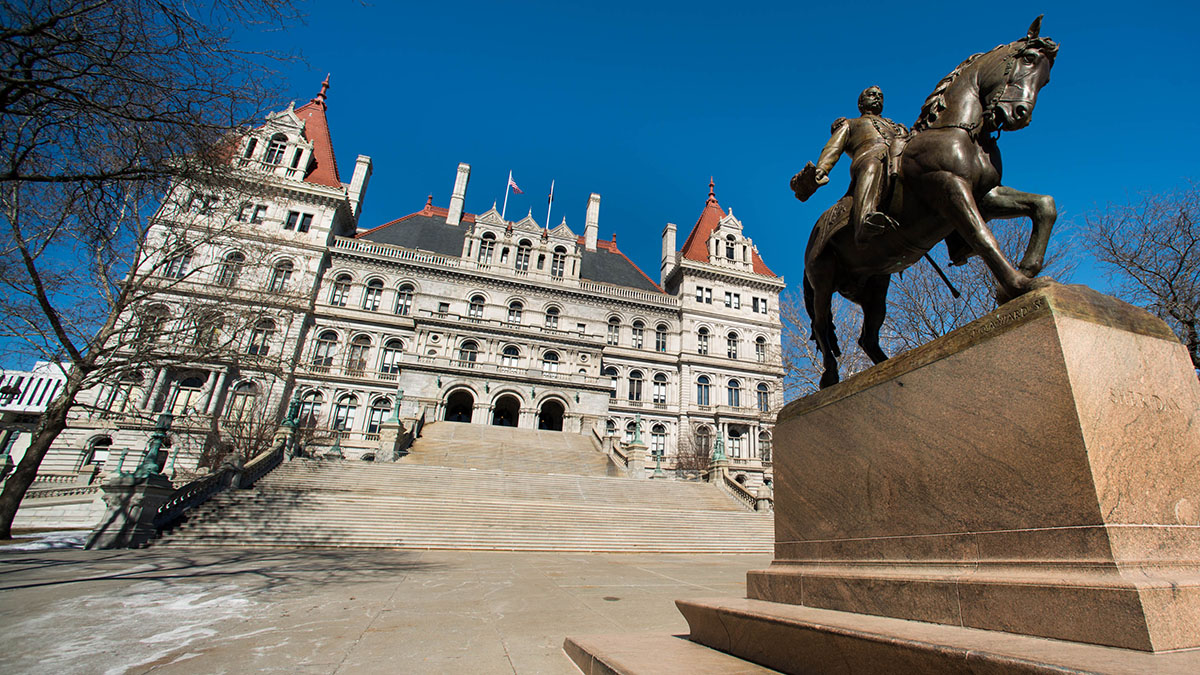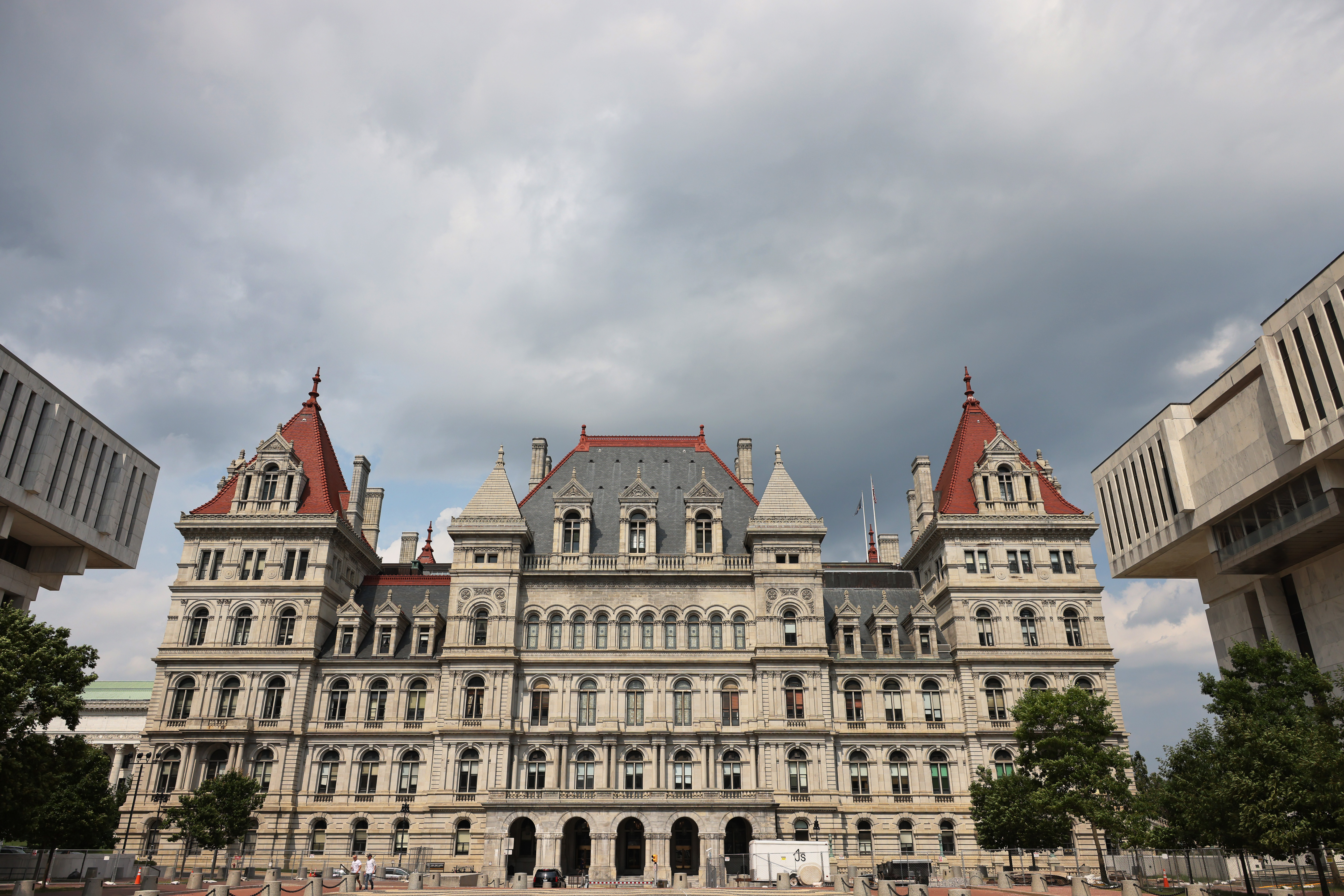After New York's highest court threw out new congressional district maps drawn by the state Legislature, the task of redrawing them has fallen to a rural judge and a researcher at Carnegie Mellon University.
Democrats' hopes of crafting an electoral map heavily favorable to their party suffered a big blow Wednesday when the state Court of Appeals ruled that the Legislature's maps were unconstitutionally gerrymandered.
The high court handed responsibility for creating a new set of maps to state Judge Patrick McAllister — the lower-court jurist who had initially declared the maps unconstitutional. Anticipating that higher courts would agree with him, McAllister had already chosen an independent expert to help him craft the maps, Jonathan Cervas, a postdoctoral fellow at Carnegie Mellon University’s Institute for Politics and Strategy.
Get Tri-state area news and weather forecasts to your inbox. Sign up for NBC New York newsletters.
The pair now face a tight deadline to come up with new maps, even as state officials try to figure out what to do about the state's primary election, scheduled for June 28.
The state may still to hold primaries in the contests for governor and state Assembly on that date, but primaries for congress and state Senate might be moved to August.
New York Gov. Kathy Hochul, a Democrat, said the state’s leaders were still deciding what to do.
“It is a very fluid and new situation,” she told reporters on Thursday.
The appeals court judges yanked the responsibility for crafting the new maps away from the Legislature, ruling it had exceeded its authority by unilaterally creating its own Congressional and state Senate maps. The Legislature had taken that move after the state’s Independent Redistricting Commission — made up of an equal number of Republicans and Democrats — failed to produce a consensus map.
Cervas, who will take the lead in crafting replacement maps, previously played a key role as a consultant who helped create legislative district maps for Pennsylvania’s Legislative Reapportionment Commission. He also served as an assistant in court-supervised redistricting programs in Utah, Virginia and Georgia.
He declined an interview request from The Associated Press on Thursday but said, “I am thrilled to assist the New York courts in delivering constitutional maps that will provide equal representation for all New York residents for the next decade.”
Cervas is scheduled to hold one public hearing May 6 on a courthouse in Bath, New York. Under the judge’s schedule, he would have to produce a draft map by May 16. The final version would have to be done no later than May 24.
On Thursday, state elections commissioners asked the judge to stick to that schedule, or even speed it up, if the state is to meet a series of legal deadlines before the November election.
An August primary would allow time to adopt new maps, send correct information to voters, finish the candidate petitioning process, and comply with federal voting laws. Ballots for military and overseas voters must get mailed out at least 45 days before a primary.
In past years, New York held primaries as late as September.
“You can’t turn a statewide election around on a dime or in a month,” said New York Law School professor and redistricting expert Jeffrey Wice.
Lawmakers can pass legislation to delay the primary to August. A state Board of Elections spokesperson, John Conklin, said the judge could also decide a date without needing legislative approval.
One potential wrinkle in rescheduling the primary could be a decade-old court order that the state's congressional primaries be held the fourth Tuesday in June. Conklin said state elections officials believed that order contained enough flexibility for the date of the vote to be moved, although the state would be consulting with the U.S. Justice Department to see if a federal court might need to review any change.
Legislative leaders didn't immediately provide a response Thursday when asked if they would move to reschedule the primary. Hochul said she wasn't too concerned with the delay, or with the fact that judges had struck down maps authored by Democrats.
“The Democrats engaged in a process that has happened in state legislatures all across this country, sometimes it ends up in litigation, sometimes there’s a different outcome. It’s just part of what happens every decade,” Hochul said.
As for potentially appealing the Court of Appeals decision striking down the Legislature's maps, Wice said Democrats have “no real option.”
Democrats could, he said, adopt a strategy used by Republicans in North Carolina. In February, North Carolina Republicans asked the U.S. Supreme Court to block a congressional redistricting plan that state judges drew.
The GOP legislative leaders argued the state judges had overstepped their authority because the U.S. Constitution gives state lawmakers the power to determine the manner of holding U.S. House elections. The Supreme Court is set to weigh that question in their fall term beginning in October.
But Wice said he doesn't recommend that New York Democrats mimic a strategy that he said calls into question state courts' authority to invalidate other laws passed by lawmakers.
Democrats could also sue to challenge maps adopted by the state court, according to Columbia Law School professor Richard Briffault.



